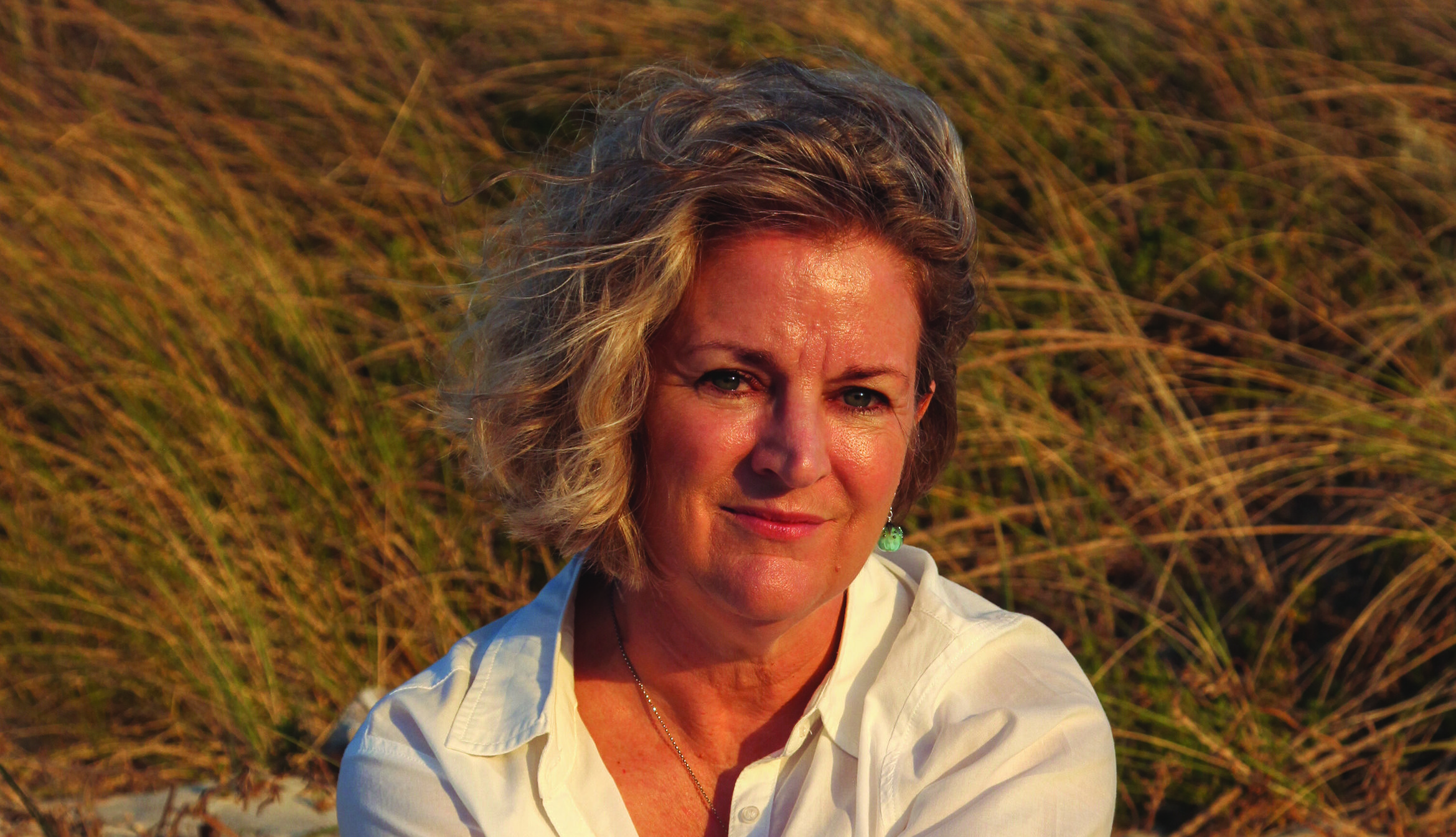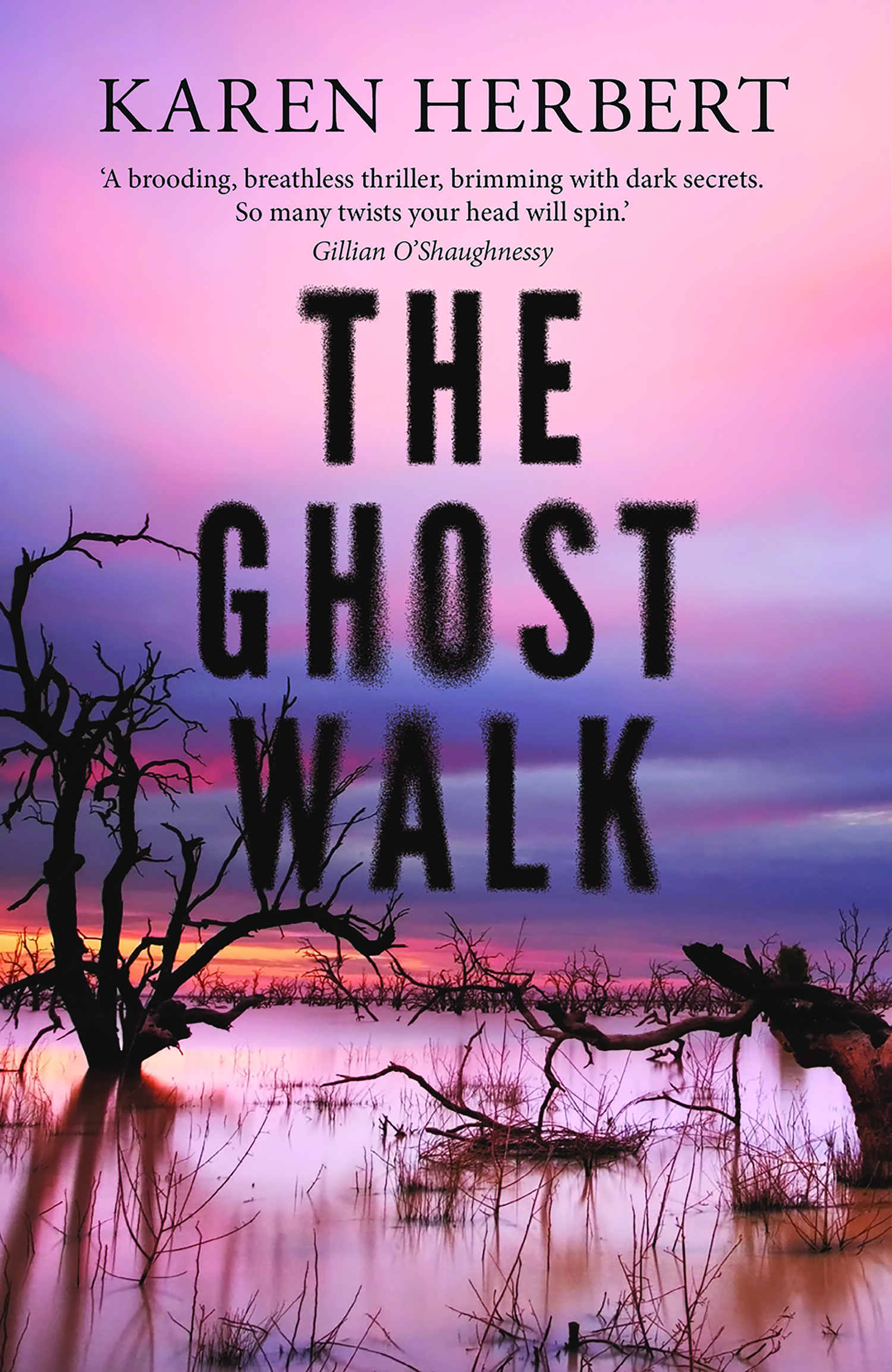
A patient is looking out of a hospital window where a forensic team are working, word on the ward is it’s the body of a doctor. Perth author Karen Herbert’s latest book looks at a crime through the eyes of a character with cystic fibrosis.
By Ara Jansen
A conversation with an old friend led author Karen Herbert to explore how to portray a main character with cystic fibrosis.
In her new novel The Ghost Walk, Ruby Rose Gillespie is also a lung transplant recipient whose surgeon is found dead. Dr Gabriel Beaufort and Ruby were secret lovers and she’s determined to find out what happened, digging back into their shared history and starting to wonder if she ever really knew him at all.
The Perth author’s fourth novel crosses genres with elements of a medical drama, suspense and romance. There’s also a fun level of detail of 80s and 90s suburban Australian nostalgia.
What might be most interesting however is that Karen’s childhood friend Jo Giles was the inspiration for Ruby.
Jo is a Perth writer and the 2024 Australian Poetry Slam Champion, who also lives with CF and litany of other issues, which she lists in her winning poem. The pair met in Narrogin when they were kids and have stayed in touch over the years.
“Jo also has an academic interest in the representation of people with disabilities,” said Karen. “She gave me some points to think about and how a person with CF would do particular things.”
RELATED: Shey Marque: From medical research to poetry
Their conversations led Karen to draw a character who is living with CF and how daily activities, perhaps taken for granted by others, are much harder or need to be done differently. Equally, could living with such restrictions also give Ruby particular insight or an ability to see things differently from other people.
For her previous book, Vertigo, Karen drew on her own experience of Meniere’s disease, a disorder affecting the inner ear which can cause episodes of vertigo, vomiting, dizziness, hearing loss and tinnitus. Her main character, Frances, has vertigo.
Writing that book helped Karen use her own experiences and in turn, when it came to The Ghost Walk, made her more comfortable drawing on her conversations with Jo and her research to authentically convey Ruby’s journey.
Karen and Jo also talked about self-determination and dignity, ensuring that as an adult Ruby had autonomy over her choices, even when other characters in the book were trying to take over some control.
“I worked in aged care for a long time and one of the big things is dignity of risk,” Karen adds. “If you’re 88 and want to eat donuts every day, you have the right to make that choice.” Separate from whether it might be the best choice.
The Ghost Walk started with a scene where a patient in hospital was looking out over a swamp and could see the forensic team working, while on the ward people were saying it was the body of a doctor. If you’re a local to Perth, you’ll likely recognise the real place Karen drew from.
“I wrote that scene and then kept writing to see what would happen. I also didn’t really know what had happened until close to the end, much like my other books. I spend a lot of time getting to know my characters, to the point that they let me know what’s going to happen next.”
Karen says sometimes a character will react in a particular way or reveal an historical detail and she doesn’t really agree. Then she’ll realise that in fact it makes perfect sense and becomes part of the story.
RELATED: Throwing a left and a write hook
“It’s interesting the way creativity works. Writing these stories is teaching me so much about creativity – I can feel all these new neural networks making connections as I write each book.”
While Karen’s books usually have a crime underpinning them, her angle is different from many other stories. She uses crime as a vehicle to “make observations about bigger things”.
In the case of The Ghost Walk, it’s shining a light on illness and disability while Vertigo looked issues such as homelessness alongside corruption.
The Ghost Walk is available now at all good bookstores.
Want more news, clinicals, features and guest columns delivered straight to you? Subscribe for free to WA’s only independent magazine for medical practitioners.
Want to submit an article? Email [email protected]


